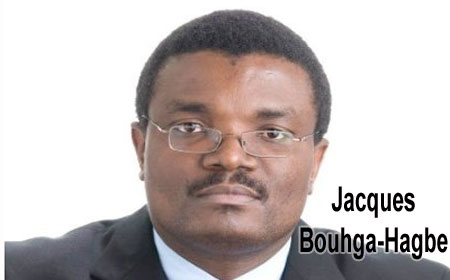BELIZE CITY, Fri. July 17, 2015–Belize’s public debt could rise significantly, especially if the Caribbean Court of Justice calls for the payment of compensation to the former owners of the recently nationalized companies – the Belize Telemedia Limited and the Belize Electricity Limited.
This is according to a press release issued today by the International Monetary Fund (IMF), at the conclusion of its annual Article IV Consultation with Belize.
The IMF mission, led by Jacques Bouhga-Hagbe, visited Belize for two weeks, starting on Monday, July 6, and concluding today, Friday, July 17.
They held discussions with key Belize officials in the context of the country’s 2015 Article IV Consultation, during which they met with Prime Minister Dean Barrow, Financial Secretary Joseph Waight, Central Bank Governor Glenford Ysaguirre, other Government and Central Bank officials, as well as representatives of the private sector, labor unions, sugar farmers and the Opposition People’s United Party.
The IMF notes that the Government’s fiscal primary balance would remain in deficit, because of expansionary fiscal policies, including wage increases and new projects financed with Petrocaribe resources.
“Although revenue collection remained in line with budget targets, spending continued to grow well above budget targets, driven by Petrocaribe-financed spending,” the release said.
“The mission noted that significant downside risks to the economic outlook deserve close monitoring, including a protracted period of weak growth in advanced and emerging economies, complications with Petrocaribe financing, and the expected drop in sugar prices after the EU sugar reform takes full effect in 2017,” it added.
The IMF said, though, that low international oil prices and growth-enhancing projects that are being implemented or envisaged could mitigate these risks.
Turning to the country’s wider national economy, the IMF reported that, “Growth accelerated to 3.6 percent in 2014 from 1.5 percent in 2013 on the back of a rebound in agriculture, and strong performances in tourism, electricity, construction and services.”
It added that a fall in international oil and food prices has pushed down headline inflation to -0.2%, year on year, as of December 2014.
However, Belize’s external current account deficit widened from 4.4% to 7.6%, largely due to a drop in petroleum exports and a robust import demand.
“Nevertheless, Petrocaribe and other official disbursements continued to finance the current account deficit and help build international reserves (equivalent to 5 months of imports at end-December 2014),” the IMF said.
The team urges that current efforts to strengthen the financial system should continue.
“Vigorous structural reforms, including greater flexibility in labor and other domestic markets, greater liberalization of the economy, simplification of procedures to start a new business and register property, and quicker resolution of contract disputes, would foster Belize’s competitiveness and raise GDP growth,” the IMF team said.

